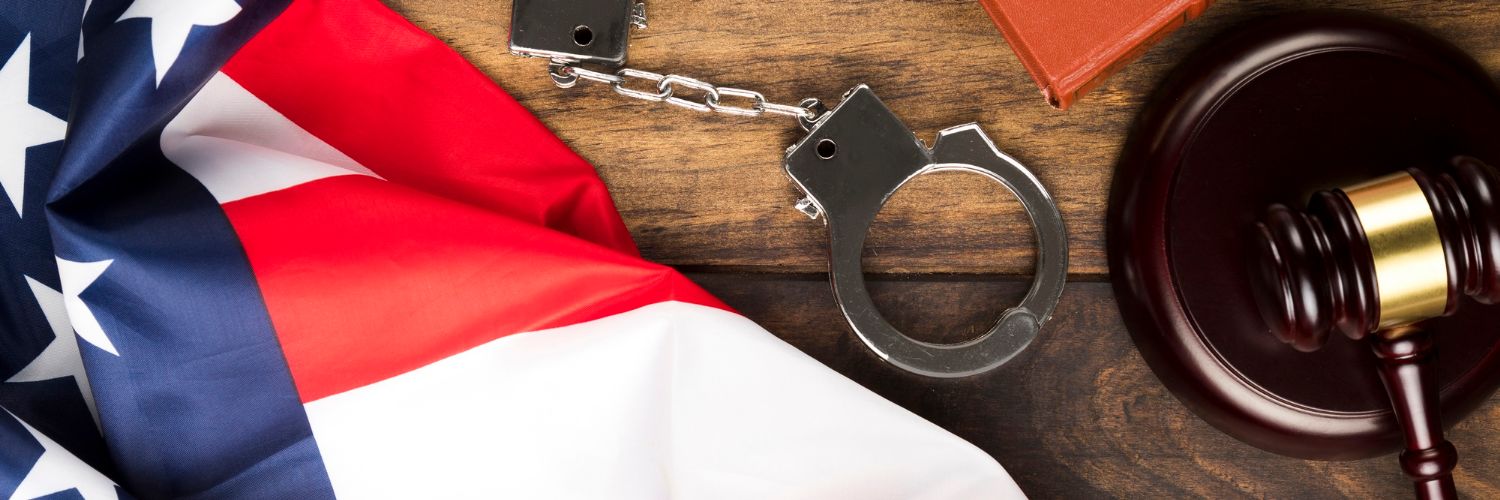Drug Distributors Win First Opioid Trial Against GA Families

Cardinal Health Inc, McKesson Corp, and JM Smith Corp won a trial in Georgia against families of opioid addicts who accused the firms of functioning as drug traffickers.
After two days of deliberation, a jury in Glynn County Superior Court handed down the judgment, which was broadcast live on the court's website. It was the first trial in which opioid claims were made by individuals rather than government agencies.
We are happy with the jury's verdict, which underscores that a statute intended to apply to illicit drug street traffickers cannot be utilized in a misguided attack on distributors of federally regulated pharmaceuticals, Cardinal said in a statement.
According to McKesson, the judgment was the correct conclusion based on the law and facts. The plaintiffs' counsel did not immediately reply to a request for comment.
Children whose parents died of overdoses are among the 21 plaintiffs, as is a lady whose grandson was born with opioid addiction signs and died at one-month-old, and a woman who was raped as a teenager but received no treatment from her opioid-addicted mother.
The plaintiffs claimed that the distributors fostered illegal opioid usage by filling bogus pharmacy orders and failed to report suspicious opioid transactions to law enforcement as required by the federal Controlled Substances Act.
More than $3,300 in state, municipal, and tribal governments have filed lawsuits against opioid makers, distributors, and pharmacies, resulting in settlements totaling more than $50 billion.
Unlike those cases, which accused firms of causing a public nuisance by failing to stop the flow of illicit opioids, the Georgia plaintiffs filed their claims under the state's Drug Dealer Liability Act, which permits persons who have been damaged by illegal drug usage to sue dealers.
According to the Centers for Disease Control and Prevention, overdoses killed more than 500,000 individuals in the United States between 1999 and 2020. According to the CDC, opioid overdoses increased by 38% in 2020 over the previous year and another 15% in 2021 during the COVID-19 epidemic.
3M Claims No Hearing Loss Among Plaintiffs In Earplugs MDL

According to 3M Co., documents from the United States Department of Defense for more than 175,000 plaintiffs reveal that the great majority of claimants in the Combat Arms earplug lawsuit have normal hearings under medically accepted criteria.
St. Paul, Minn.-based manufacturer of thousands of consumer and industrial products said an analysis of Pentagon audiometric data for claimants revealed that the vast majority of claimants did not have hearing loss according to standards set by leading medical and health organizations such as the American Medical Association and the World Health Organization.
Nevertheless, co-lead counsel for the service member and veteran plaintiffs claimed that 3M misrepresented Military statistics. According to the attorneys, the data shows that around 85% of plaintiffs suffer from hearing loss or tinnitus, and that of the 13 previous jury judgments in favor of plaintiffs, 11 would be declared unimpaired under the standards 3M is looking at, including those who wear hearing aids.
According to 3M, roughly a quarter of the plaintiffs with hearing impairment by either AMA or WHO criteria disclosed their condition in hearing tests before using the Combat Arms earplugs.
According to the report, the analysis does not take into account other causes of hearing loss that may have affected the percentage of service members with hearing loss, such as medical conditions unrelated to noise exposure, non-military noise exposure, hearing loss that predates a service member's use of Combat Arms earplugs, and injuries sustained while not wearing Combat Arms earplugs.
3M and Aearo said they will continue to defend their positions in the multi-district action and pursue their appeals if required. On May 1, oral arguments for the appeals of the initial bellwether trials, which involve legal and evidentiary problems, are scheduled.
3M has stated that their military earplugs are safe provided service members are properly trained on how to use them. The earplugs were originally manufactured by Aearo, but 3M purchased the firm in 2008. In the summer, 3M committed to pay for the settlement of claims mediated by Aearo in bankruptcy court.
Lawyers representing veterans suing 3M over its earplugs requested a federal judge in early February to dismiss Aearo's bankruptcy application, which would protect the industrial multinational from court hearings.
US Argues To Toss Out 3M Earplugs Unit From Bankruptcy

The Justice Department said that 3M Co. subsidiary Aearo Technologies LLC should be dismissed from the bankruptcy court in faulty earplugs lawsuits, noting the recent rejection of a similar case involving a Johnson & Johnson company.
The US Trustee, the Justice Department's bankruptcy oversight program, told the US Bankruptcy Court for the Southern District of Indiana that Aearo's Chapter 11 case was an "abuse of the bankruptcy system" designed to benefit its highly solvent corporate parent and avoid ongoing litigation stemming from allegedly faulty earplugs.
This month, the United States Court of Appeals for the Third Circuit concluded that J&J's specifically constructed talc liability arm, LTL Management LLC, did not belong in bankruptcy. The court reasoned that LTL is not in a financial crisis because of its parent company's unlimited funding arrangement. The US Trustee argued in a Feb. 25 filing that, although being in a different circuit, the Indiana court should dismiss Aearo's complaint for the same reason and require the business to continue litigation in the tort system.
The trustee further stated that the court should reject the Aearo Debtors' and 3M's schemes and put an end to the misuse of the bankruptcy system by this bad faith, 'surrogate' bankruptcy of Aearo for the benefit of 3M.
According to a news release issued earlier this month by 3M, the LTL finding is inapplicable in Aearo's case, and dismissal would unnecessarily disrupt the well-established Chapter 11 procedure, forcing the company to return to prolonged litigation in the mass tort system.
The government's attempt to dismiss the lawsuit comes on the heels of a similar request made on February 2 by a group representing over 230,000 veterans and contractors who have claims against 3M and Aearo. They argue that their allegations that the company's Combat Arms Version Earplugs caused hearing loss should be heard in a tort court.
Aearo and 3M are having increasing difficulty resolving the claims in bankruptcy court. A federal judge in Florida has previously determined that 3M is fully liable for hearing loss claims, and the US Bankruptcy Judge declared in August that Aearo's bankruptcy safeguards against ongoing litigation do not extend to 3M. The decisions are being challenged.
Court Rejects Company's Challenge To LA Flavored-Tobacco Ban

The United States Supreme Court declined to hear R.J. Reynolds Tobacco Company's appeal to Los Angeles County's prohibition on the sale of flavored tobacco products, arguing that only the federal government, not state or local governments, has the legal right to control tobacco products.
The Supreme Court denied the tobacco company's appeal of a lower court's decision to sustain the prohibition, which encompasses menthol cigarettes and vape juice, and went into effect in 2020. R.J. Reynolds is a brand owned by British American Tobacco.
In December, the Supreme Court upheld a California statewide prohibition on flavored tobacco products, which was also challenged by R.J. Reynolds. The Democratic governor of California signed the prohibition into law in 2020 as a policy reaction to worries about an increase in teen e-cigarette and tobacco use, and it was upheld by voters in a 2022 ballot proposal.
After Massachusetts, California became the second state to prohibit the sale of all flavored tobacco products in 2019. Some additional states have prohibited flavored vaping items, and numerous municipalities have enacted their own restrictions.
The municipal prohibition was signed by a previous Los Angeles Mayor, a Democrat, in June, and was lauded by medical groups such as the American Lung Association, which termed it a "tremendous stride in public health."
Scented tobacco products, particularly e-cigarettes, have come under fire in recent years, with detractors claiming that they appeal to adolescents. The US Food and Drug Administration attempted to take all of the prominent e-cigarette producer Juul Labs Inc's products off the market last year, but that decision is on hold while the company appeals.
Last year, a three-judge panel of the 9th U.S. Circuit Court of Appeals in San Francisco maintained the Los Angeles prohibition by a 2-1 decision. The panel determined that the industry misinterpreted a 2009 statute that granted the FDA the jurisdiction to set and implement "tobacco product standards," noting that this implies the FDA has sole authority to oversee the manufacture and marketing of tobacco products but not retail sales.
The implementation of the statewide ban was postponed when a group representing the tobacco industry gathered enough signatures to place a ballot question before voters to repeal the policy. The sales prohibition was supported by over two-thirds of those who voted.
The FDA will issue a long-awaited plan to prohibit menthol cigarettes and flavored cigars in the United States in 2022, though implementation will take years.
